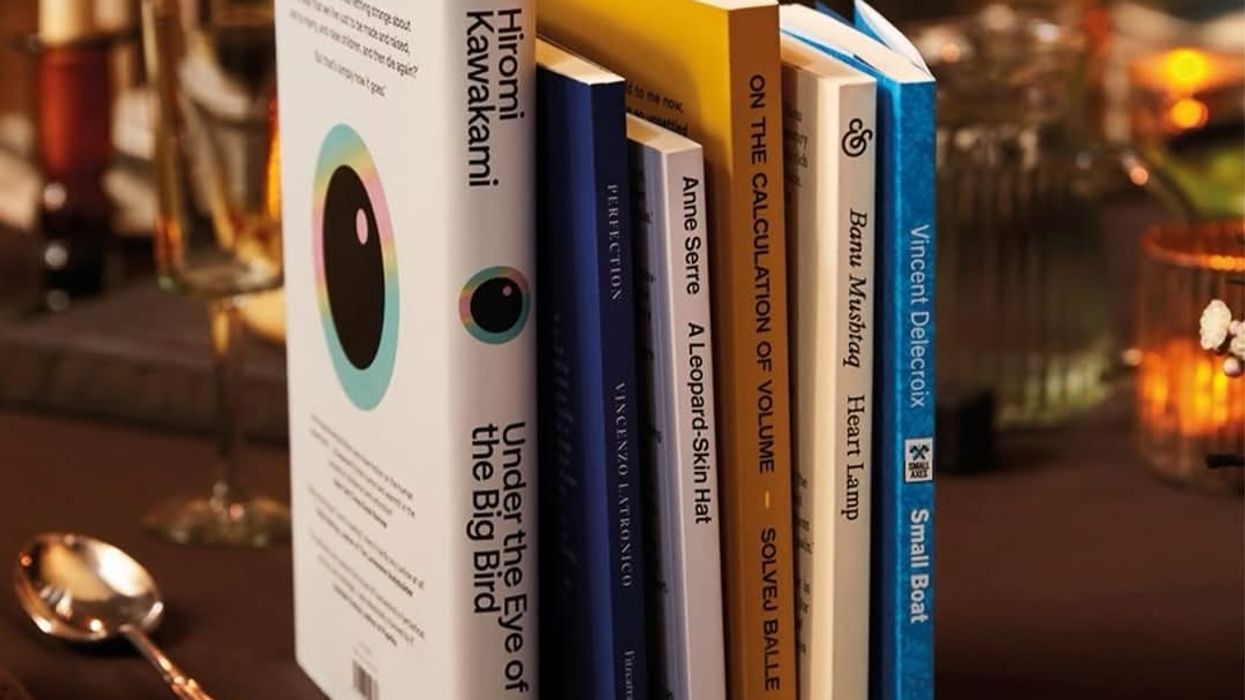For the first time in its history, the International Booker Prize shortlist features only books published by independent presses. The 2025 selection highlights six author-translator teams, all now competing for the £50,000 prize, which will be equally shared between the authors and translators. The winner will be announced on 20 May.
Kawakami and Balle among shortlisted writers
Japanese author Hiromi Kawakami and Danish writer Solvej Balle are among those shortlisted. Kawakami, known for her novel Strange Weather in Tokyo, has been recognised for Under the Eye of the Big Bird, translated by Asa Yoneda. This novel-in-stories continues Kawakami’s exploration of human relationships and surreal experiences.
Balle’s On the Calculation of Volume I, translated by Barbara J Haveland, is also shortlisted. The novel is the first in a planned seven-part series where the protagonist, Tara, finds herself trapped in a repeating time loop.
Sophie Hughes sets a new record
British translator Sophie Hughes has been shortlisted for her translation of Perfection, originally written in Italian by Vincenzo Latronico. This marks Hughes' third time being shortlisted for the prize, setting a record for the most shortlists and longlists achieved by a translator in the prize’s history.
Latronico’s Perfection examines a millennial expat couple living in Berlin. According to Thomas McMullan in The Guardian, the novel "transcends its satire of 2010s hipsterdom through the depth of Latronico’s sociological observations," articulating the displacement experienced through globalisation.
Kannada-language work featured for the first time
In a historic first, a translation from Kannada — a language spoken by millions in southwest India — has been shortlisted. Heart Lamp by Banu Mushtaq, translated by Deepa Bhasthi, captures the everyday lives of women and girls in Muslim communities in southern India through 12 short stories written between 1990 and 2023.
Other titles on the shortlist
Small Boat by Vincent Delecroix, translated from French by Helen Stevenson, also features on the shortlist. Written in just three weeks, the book is based on real recordings surrounding the tragic November 2021 event when a dinghy carrying migrants capsized in the Channel, resulting in 27 deaths.
Completing the list is A Leopard-Skin Hat by Anne Serre, translated by Mark Hutchinson. Serre wrote the novel following the death of her sister, creating a work that serves as a personal memorial, focusing on a woman dealing with severe psychological struggles.
Judge’s comments
Chair of judges Max Porter described the shortlist as "mind-expanding," noting that these books "ask what might be in store for us, or how we might mourn, worship or survive." He added that the works present "knotty, sometimes pessimistic, sometimes radically hopeful answers" and create "a miraculous lens through which to view human experience."
Slim volumes dominate
Notably, four of the six shortlisted works are under 200 pages in length, including Latronico’s Perfection. The compact nature of the shortlisted books has been praised for their ability to convey complex ideas succinctly.
Longlist and judging panel
The initial longlist included titles such as The Book of Disappearance by Ibtisam Azem, There’s a Monster Behind the Door by Gaëlle Bélem, Solenoid by Mircea Cărtărescu, Reservoir Bitches by Dahlia de la Cerda, Hunchback by Saou Ichikawa, Eurotrash by Christian Kracht, and On a Woman’s Madness by Astrid Roemer.
This year’s judging panel, chaired by Max Porter, also includes poet Caleb Femi, writer and Guardian critic Sana Goyal, author and translator Anton Hur, and musician Beth Orton.
Previous winners
Previous winners of the International Booker Prize include Han Kang (The Vegetarian), Olga Tokarczuk (Flights), and Lucas Rijneveld (The Discomfort of Evening). In 2024, Jenny Erpenbeck and translator Michael Hofmann won the prize for Kairos.





